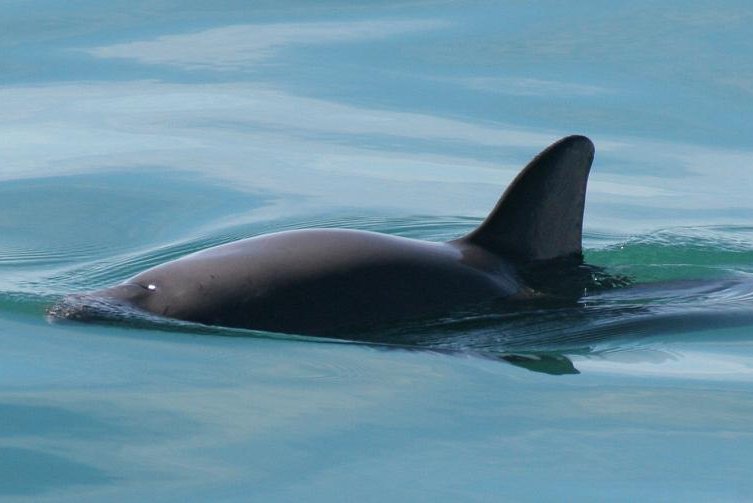A vaquita porpoise swimming in the Gulf of California. (CC/NOAA)
SAN FELIPE, Mexico, Aug. 13 (UPI) -- There are apparently only 97 vaquita porpoises left in the world. That's less than half what scientist put the porpoise's population at in 2012.
The marine mammal -- whose name means "little cow" in Spanish -- is found only in the Gulf of California. And soon, it may not be found anywhere at all, as it is now perilously close to extinction.
Conservationists say the porpoises routinely get caught and tangled in the gill nets local fishermen use to catch fish and shrimp. Even more deadly than fish and shrimping nets are totoaba nets. Totoaba are fish which belong to the drum family and which are also distinct to the Gulf of California (sometimes called the Sea of Cortez). They're prized for their gal bladders, which are sold to insatiable markets in Asia and used in traditional Chinese medicine. Not surprisingly, Totoaba are also endangered.
"If there is fishing for totoaba this September, the vaquita might disappear this year," Omar Vidal, a spokesperson for the World Wildlife Federation, recently told the South China Morning Post. "Totoaba nets are the best device to catch vaquitas."
Mexico has worked to police tortoaba fishing, but experts say the financial incentives for fisherman to poach and sell tortoaba is too great.
"It's a brutal incentive," Lorenzo Rojas, a marine biologist in Mexico, told The Guardian. "They can earn in a few catches what they would normally earn in a year."
But environmentalists in Mexico and the U.S. say the Mexican government could and should do more. An international team of scientists recently -- hired by Mexico to assess the situation -- told government environmental officials that they only had one option to save the vaquita, enact a complete ban on gillnetting.
So far, Mexico has been mum on whether it will consider such a measure.
Barbara Taylor, a marine biologist with the Southwest Fisheries Science Center in San Diego and a member of the team of scientists advising Mexican policy, told National Geographic a ban could still save the embattled porpoise.
"Most marine mammals, including other cetaceans, that have been taken down through hunting have come back, so it's not too late," she said. "But if nothing is done, they can also go extinct rapidly, as happened with the baiji. They can be gone before you know it."















